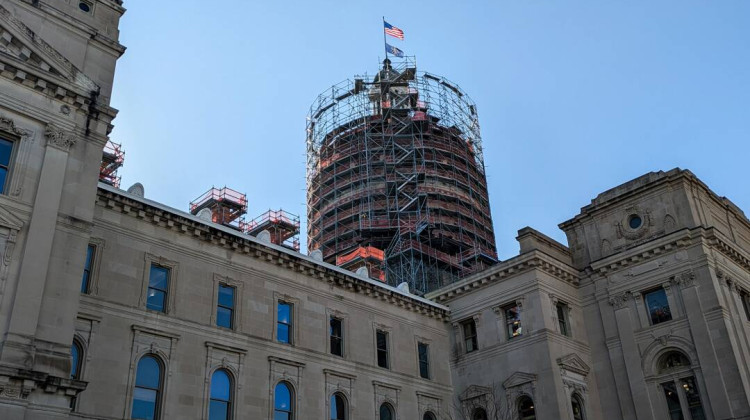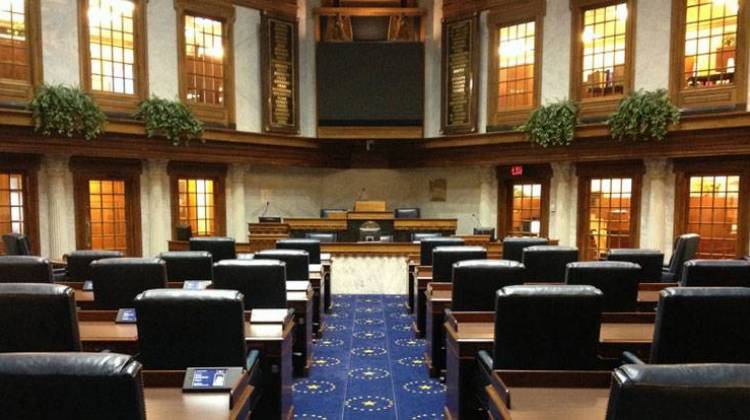
A report from the Center on Budget and Policy Priorities estimates roughly 175,000 Hoosier children are at risk of slipping back into poverty or deeper into poverty if the expanded federal child tax credit ends after December.
Justin Hicks/IPB NewsRoughly 175,000 Hoosier children under the age of 18 are at risk of slipping back into poverty or deeper into poverty if the expanded federal child tax credit ends after December. That’s according to a new report from the Center for Budget and Policy Priorities. The study also estimated about 92 percent of children under 18 in Indiana would lose out on the expanded benefits, if the monthly payments end.
Advocates urge Congress to pass the Build Back Better bill that would preserve the expanded tax credit into 2022 and help keep children out of poverty.
The proposed legislation not only continues the current advance child tax credit payments – which was signed into law last spring – but also keeps families that did not qualify in the past a part of the expanded program.
Sharon Parrott, Center for Budget and Policy Priorities president, said the advance child tax credit was a huge step in reducing poverty and racial and geographic inequities across the country.
"Prior to the expansion 27 billion children, including roughly half of Black children and Latino children, and half of children in rural communities received less than the full credit or no credit at all, because their parents' incomes were too low," said Parrott. "Prior to the expansion, we gave the least help to children who needed it the most."
READ MORE: Advocates urge Congress to extend child tax credit expansion
Join the conversation and sign up for the Indiana Two-Way. Text "Indiana" to 73224. Your comments and questions in response to our weekly text help us find the answers you need on statewide issues.
She said the survey conducted by her organization found that most families receiving the child tax credit payments used the money towards basic needs including food, clothing, utilities, education and rent or mortgage.
Whitney Kimball Coe is the director of national programs at the Center for Rural Strategies. She said the child tax credit monthly installments help both mental and physical health in communities.
“These monthly installments are not a paycheck,” said Coe. “They are not a living wage. They are a bridge to opportunity to hope; to a better night's sleep. They mean that families might not have to choose between food and keeping the lights on.”
The Build Back Better bill passed the U.S. House largely along party lines last month. The $2 trillion package now faces a holiday deadline in the Senate.
Contact reporter Samantha at shorton@wfyi.org or follow her on Twitter at @SamHorton5.
 DONATE
DONATE






 Support WFYI. We can't do it without you.
Support WFYI. We can't do it without you.